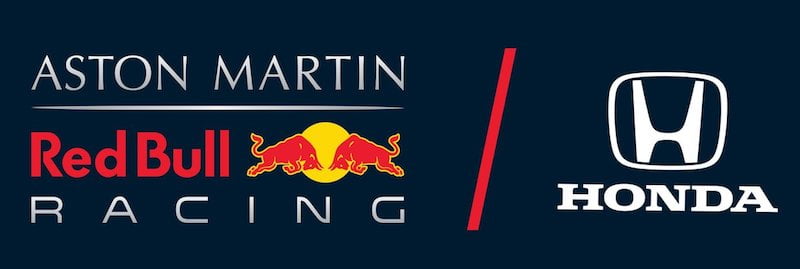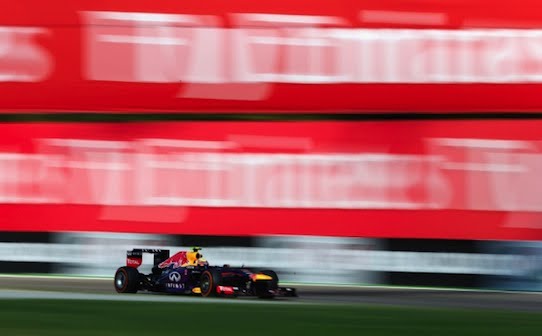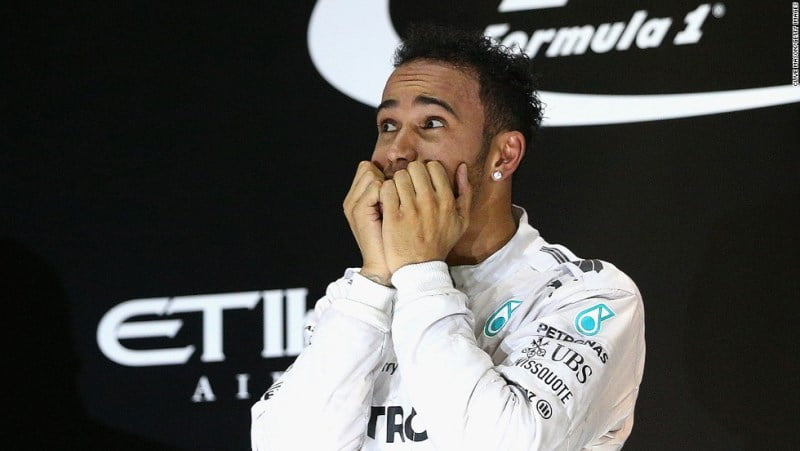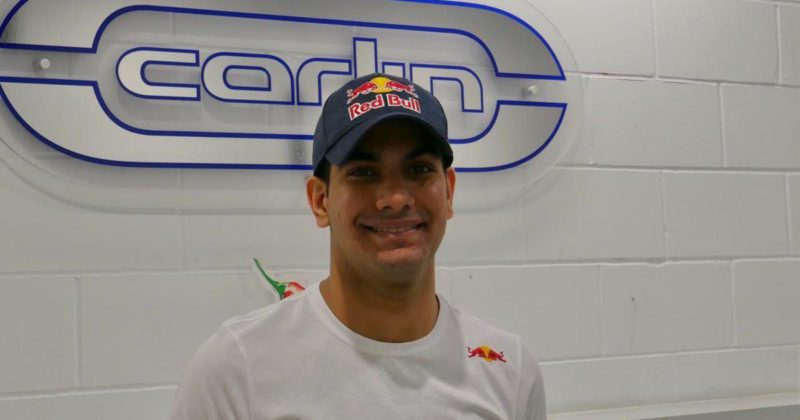Daniel Ricciardo is the only missing piece in the Red Bull Racing-Honda jigsaw puzzle for 2019. Will the Australian sign an extension with Red Bull Racing for one year? Ferrari and Mercedes might just make his decision making task a bit easy.
In a bid to fight for the Formula 1 Championships next year, Red Bull Racing announced a tie-up with the slowest (alternatively, the fourth fastest) engine supplier on the grid – Honda. The truth may sound funny and it may see Red Bull Racing face the blushes like McLaren did from 2015-17. However, Red Bull Racing’s decision is more to do with the possibilities with Honda in the future than their failures in the past. If this punt goes well, McLaren would have endured all of Honda’s pain, while Red Bull Racing could stand to enjoy all the gains!
THE INSIDE LINE F1 PODCAST IS HOSTED BY MITHILA MEHTA AND KUNAL SHAH. THIS FORMULA ONE PODCAST OFFERS A HUMOUROUS VIEW ON THE SPORT.
First things first, there’s credit to be given to Renault. Red Bull Racing’s history wouldn’t have been as illustrious had it not been for Renault’s engines that powered it to four World Championships from 2010 to 2014. A switch to Honda power means an end to a 12-year partnership between Red Bull Racing and Renault, one that has deteriorated since the start of the hybrid-turbo era. As for this announcement, it could seem ‘below the belt’, especially since Renault’s home race, the French Grand Prix, is making a return to Formula 1 this weekend.
Why Red Bull Racing Can’t Demote Max Verstappen
For all of the dirty laundry that both teams have washed in public, Renault need to be thanked for agreeing to supply power units to Red Bull Racing when both Ferrari and Mercedes outright denied to do so. There was actually a brief moment when Red Bull Racing could have been left with no power units for their cars. At that time (back in 2015), Honda wasn’t even considered as an option, but for 2019 and 2020, Honda could actually be a good option for various reasons – both sporting and commercial.
On the sporting front, the present-day Honda is different from the Honda that partnered with McLaren last season. Apart from the obvious lessons, changes in team personnel, processes and factory capabilities have been widely reported. From wanting to quit Formula 1 last season, to actually partnering Red Bull Racing is an unexpected promotion, but hopefully a good reward for Honda who are committed to making their return to Formula 1 a successful one.
Is This Daniel Ricciardo’s New Podium Trick?
From supplying power units to a team that wanted to get back to winning ways (McLaren), to supplying to a team that is actually winning and racing at the front with Ferrari and Mercedes, the pressure of partnering Red Bull Racing is going to be enormous for Honda. They need to ensure that they don’t suffer yet another embarrassing separation from a leading Formula 1 team. Honda has acknowledged that gathering data from four cars would definitely aid their development cycle. While currently announced as only a two-year partnership, the prospects of co-developing a power unit towards the new regulations in 2021 would also have appealed to Red Bull Racing; a learning from their failures with Renault from 2014 – the start of the hybrid-turbo era.
Also for Red Bull Racing, after their repeated and untiring complaints about Renault power or the lack of it, their decision to switch reminds us of Albert Einstein’s famous quote ‘Insanity is doing the same thing over and over again and expecting different results.’ While not entirely contextual, Red Bull Racing perhaps know what to expect from Renault in the time to come – their partnership failure can be attributed to a mismatch in patience between the two.
In 2019, Mercedes Will Lap At Mclaren’s Pace
Apart from the lack of power, Renault has suffered from reliability issues this season, although they have been better than Honda on that front. Renault’s decision to not out-spend themselves for Formula 1 glory also means that their development curve might not be as acute as Red Bull Racing would want for it to be.
On the commercial front, after paying for Renault engines for 12 years, Red Bull Racing will save millions on power unit costs as Honda would be expected to supply these free-of-cost in their partnership. Additionally, Honda would be expected to pay an exposure fee for their decals to be displayed on the Red Bull Racing car and other brand assets (though this may not be as high as the $100 million they paid McLaren). Apart from this, such a partnership with Honda is possibly the next best option for Red Bull Racing after deciding against building their own power units – a move that is outside the core strengths of the Red Bull family (they are an energy drinks company, after all) and would cost the brand millions of dollars.
Why Wait Till 2021, When F1 Can Improve In 2019?
The savings from power unit expenses and additional income from Honda would allow Red Bull Racing to reduce their expenses towards their Formula 1 operations – a move that will please the Red Bull Energy Drinks magnate Dietrich Mateschitz. However, a significant part of this money could well go towards securing a key missing piece of the Red Bull Racing puzzle – Daniel Ricciardo. The Australian driver is still weighing up his options for 2019 and it is publicly known that he was eager to see what power units would end up powering his car in 2019 before thinking of an extension with Red Bull Racing. But would a switch to Honda power please Ricciardo?
Well, chances are that it won’t. The Red Bull Racing-Honda project has stronger prospects in the medium to long term, while Ricciardo, who will turn 29 in a fortnight’s time (1 July), is eager to have a package that allows him to challenge for the World Championship as early as next season. It would take more than a miracle for Red Bull Racing to be able to deliver to Ricciardo’s expectations for 2019 with Honda power.
Why Daniel Ricciardo Should Leave Red Bull Racing
However, Ricciardo’s headache of making a choice could be eased by Ferrari and Mercedes – both of whom seem eager to continue with their driver lineups from 2018. In which case, Ricciardo’s challenge would be to convince Red Bull Racing for a year’s extension while hoping that a seat at Ferrari or Mercedes becomes available in 2020, in case his Red Bull Racing-Honda package isn’t competitive enough. Could Lewis Hamilton retire or would Ferrari let go of Sebastian Vettel if he fails to deliver them a World Championship?
Also on the commercial front for Honda, their overall brand image will definitely find the prospects of partnering with a young and vibrant team like Red Bull Racing and the sport’s youngest superstar driver Max Verstappen highly appealing. But before they are able to reap intangible benefits from this partnership, success in terms of race wins will be the first tangible deliverable.
Fernando ‘Hungry Dog’ Alonso, F1’s Highway To Hell
Let’s remember, Red Bull Racing is a proven race-winning team with two wins in 2018; if Honda are able to help them retain this status in 2019 itself, this partnership will go a long way in rebuilding Honda’s esteem in the Formula 1 paddock. In what could be a move out of a lack of choice for Red Bull Racing, the partnership with Honda could turn out to be a masterstroke in time to come.
Finally, Renault could be one of the biggest losers in this decision. On the commercial front, they have lost a customer who paid money to use their engines (reportedly 20 million annually). But one wonders what is worse for Renault – losing Red Bull Racing as a technical benchmark for the team, or losing Red Bull Racing, the team that is closer to bringing them World Championship glory than their own works team.
This post was first published on Firstpost














